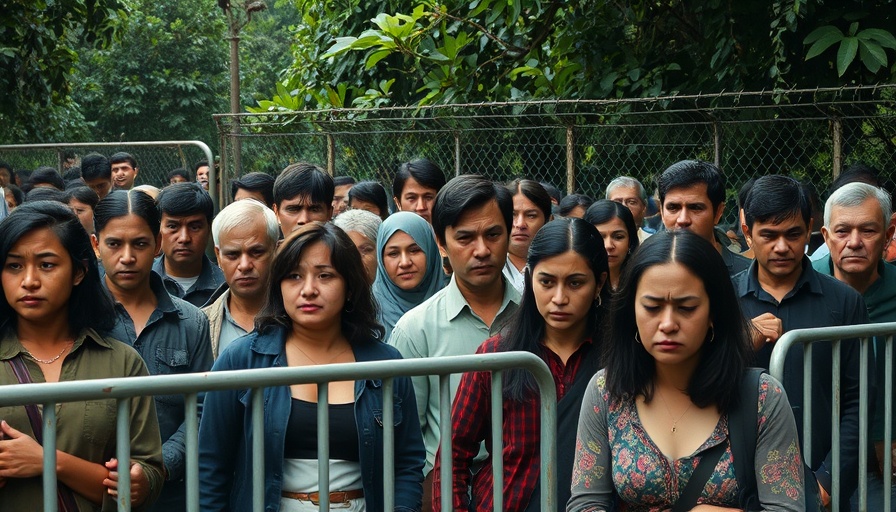
Understanding the Immigration Landscape: Arrests vs. Deportations
As the U.S. grapples with ongoing immigration debates, recent statistics indicate a notable increase in arrests at the U.S.-Mexico border, accompanied by a surprising decrease in deportations since the start of the Trump Administration. This paradox paints a picture of a complex immigration system where enforcement tactics and policies are constantly evolving.
The Spike in Arrests: What’s Driving This Trend?
Border Patrol and ICE agents have reported a significant uptick in arrests, indicating a robust enforcement strategy. As individuals seek refuge from violence or economic hardship in their home countries, many find themselves part of this surge. The relentless storytelling of these individuals—families risking everything for a better life—creates a human connection that resonates. This spike isn’t merely about statistics; it's about lives intertwined with the fabric of our community.
Deportations on the Decline: A Shift in Focus
In stark contrast, while arrests are rising, deportations have fallen. This decline has raised questions about the priorities within U.S. immigration enforcement. Instead of an outright deportation strategy, the focus appears to have shifted toward alternative measures that may include more humane considerations for individuals facing dire circumstances. Understanding the motivations behind this shift is crucial for grasping the larger conversation about immigration reform.
Emotional Narratives: Heartwarming Stories Amidst Struggles
Within the turmoil of the immigration conversation lies a treasure trove of heartwarming stories that define communities across the U.S. From local families offering support to newcomers, to volunteers working tirelessly with local non-profits, the pulse of community spirit shines through. These narratives illustrate the resilience of individuals striving to make a life for themselves, fostering a sense of hope and belonging.
Cultural Impacts: The Human Connection
Every immigrant’s story contributes to the unique tapestry of our society. Their traditions, cuisine, and perspectives enrich local cultures, bridging gaps and fostering a greater understanding amongst communities. As Houston exemplifies this deep-rooted diversity, recognizing and valuing these contributions becomes increasingly important for nurturing solidarity and harmony.
Looking Ahead: Future Immigration Policies
The landscape of immigration is ever-changing, and understanding current trends can provide insights into potential future policies. Advocacy for reform is more crucial than ever as communities push for compassionate treatment and recognition of the challenges faced by immigrants. Without addressing the root causes of migration, any policy change may be merely a temporary fix.
Calls for Action: Advocating for Change
Engagement is key. Communities are encouraged to advocate for reform that addresses the complexities of immigration with empathy and understanding. Support can manifest in petitions, community events, or simply reaching out to local representatives to express the need for progressive policies that prioritize humane treatment over punitive measures.
Conclusion: Every Voice Matters
The stories behind the statistics remind us that every individual matters; each person’s journey impacts not just their life, but the entire community. By fostering understanding and compassion, we can work toward solutions that uphold dignity for all. Readers are encouraged to take an active role in this conversation, whether it’s through advocacy, education, or simply sharing the stories that resonate.
In Houston and beyond, let’s commit to being voices for those who often go unheard, ensuring that humanity is at the center of immigration discussions.
 Add Row
Add Row  Add
Add 




Write A Comment